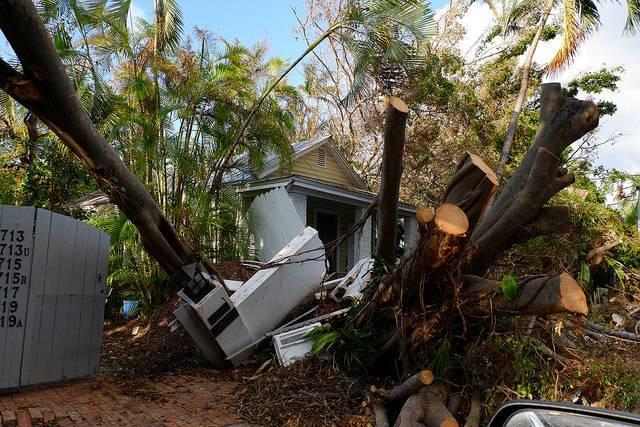
Last July the small burg of South Miami crossed a milestone: It became the first city in Florida to require solar panels to be part of all new homes. Its role in the Sunshine State of America wasn't going to be missed: it was time, city commissioners reasoned, for East Coast residents to join West Coast communities and ensure that renewable energy was part of the city's future.
The new bylaw was just one of several recent efforts in Florida to endorse solar and wind power generation. A month earlier, the Florida state legislature had voted to exempt renewable energy infrastructure from state property taxes and assessments of businesses. It had passed a bill exempting solar and wind from homeowners' state tax assessments more than a decade earlier. The latest changes were hailed as an indicator that Floridians would not only reap the rewards of lower power bills but have greater independence by generating their own power.
That is, except when there is an emergency like a hurricane.
The first thing South Florida residents learned after Hurricane Irma had cleared a swath through their neighborhoods is that investing in renewable energy won't necessarily get your power back on any faster. That is, if you are hooked to the grid and haven't installed batteries. Within hours of making landfall, Irma had knocked out power to millions of people across the state. Homeowners who had solar panels attached to the electricity grid were told they were required to shut them off until Florida Power & Light had restored power in their area. According to the company, the requirement protects workers while repairing downed lines.
Those residents that had back-up battery systems and could access power "off-grid" from stored battery power weren't affected by the restriction. But for the majority of solar owners in sunny Florida, accessing a hot shower, coffee or a hot meal meant waiting until FPL had their neighborhood back on the grid -- same as those neighbors who hadn't spent the money to buy solar panels.
And wait they did. By Sept. 19, almost two weeks after the hurricane barreled up the west coast of the state, more than 3,000 people were still without power, prompting calls for a state review of Florida's power grid, which largely is above ground and was affected by fallen trees. It's also prompted a class-action suit against FPL with questions about why the company has charged "millions and millions [of dollars]" to mitigate for hurricane outages in the past decade, yet allegedly had not completed the work for which they had collected the fees.
For homeowners who invested in solar panels however, FPL has prompted hard questions about the value of hooking their renewable power systems to a grid operated by a state-wide utility company. Within days of the power outage, major media outlets were incorrectly reporting that the real problem stemmed from FPL's own rules that solar users power-down their solar panels and that FPL's regulations were ultimately responsible for lost solar power.
In fact, loss of solar power during a power outage is inevitable for users that don't back up their systems with a battery system, first, which was the case for millions of residents who assumed that being hooked into a net metering system wouldn't affect their "free" access to the sun's electric power.
And, as snopes points out, FPL isn't the only company that publishes a codicil when it comes to the use of solar power during power outages.
"This is a safety precaution and industry-wide standard put in place to prevent line workers from being electrocuted while restoring power during an outage — and it is not unique to Florida," the writers point out.
For solar users then, the real question may be the value they derive from plugging into a regional grid. Are the doing so to save money through net metering, or are they preparing for unforeseen emergencies, like climate-related power outages? And have they investigated the difference?
Florida's recent loses from Hurricane Irma offer a compelling reason for putting regional power lines underground, argues Roger N Anderson. Senior Scholar at the Center for Computational Learning Systems in the Fu School of Engineering and Applied Sciences at Columbia University.
"Given that reality, and the fact that climate change promises more and more violent weather disruptions, we should immediately move to put all power distribution systems underground," suggest Anderson.
But it also may encourage users to become more knowledgeable of just what that new solar energy package will ultimately provide when a storm is at their doorstep.
Image: Flickr/Cayobo
Jan Lee is a former news editor and award-winning editorial writer whose non-fiction and fiction have been published in the U.S., Canada, Mexico, the U.K. and Australia. Her articles and posts can be found on TriplePundit, JustMeans, and her blog, The Multicultural Jew, as well as other publications. She currently splits her residence between the city of Vancouver, British Columbia and the rural farmlands of Idaho.














